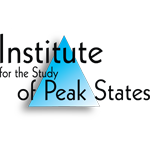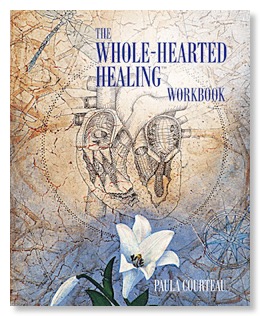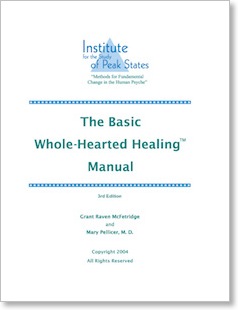Whole-Hearted Healing®
A regression technique for trauma healing
Nov 15, 2014
Whole-Hearted Healing (WHH) is the name of a psychological regression technique that is used to eliminate the symptoms of 'post traumatic stress disorder' (PTSD). It is an extremely simple technique that does not use hypnosis or any other kind of unusual preparation - it is routinely used in therapist's offices; or as a self-help technique at home.
It was developed by Dr. Grant McFetridge in the 1990s as a technique to heal trauma, as well as a way to easily access prenatal memories. WHH is the Institute's primary tool in our investigations into the origins of various diseases and disorders, and in our research into exceptional states of consciousness ("peak states").
What is a regression therapy?
It turns out that when something in the present is feeling difficult or painful - say public speaking, or stress at work, or more serious issues - it's because we've been 'triggered'; feelings from painful, past traumatic moments rise back into the present. In fact, it turns out that most psychological and many medical problems are due to these old, usually forgotten 'traumatic' memories affecting our minds and bodies. The different kinds of trauma therapies work by exploiting different subcellular biological mechanisms to eliminate the painful content from these past traumatic moments.
Whole-Hearted Healing is what is called a 'regression' technique - it has the client 'return to the scene of the crime' by remembering painful events from their past. WHH is unusually powerful because it not only lets people recall forgotten memories from their childhood, but allows people to easily regress to prenatal 'cellular' memories; and it turns out that this is where most of our traumatic feelings first start. The second part of WHH is the method used to eliminate the physically and emotionally painful feelings at those past original moments. Typical time to heal a traumatic experience is about 30 minutes.
To many people's surprise, we routinely tell therapists and clients that for general trauma they should try using meridian techniques or bilateral stimulation techniques first, rather than WHH. This is because meridian therapies are usually far faster and much less emotionally and physically painful. (Meridian therapies, often called 'energy therapies' or 'tapping therapies' include the very popular 'Emotional Freedom Technique' (EFT) as well as traditional Chinese acupuncture. Bilateral stimulation is used in the very popular 'Eye Movement Desensitization and Reprocessing' (EMDR) technique.)
However, WHH is still used by many therapists around the world. Why? It's because there are clients or traumas where easier approaches like the EFT or EMDR just won't work or work well, but WHH does. Thus, WHH has a special niche that makes it very useful in some trauma situations, and so therapists learn it to put in their 'healing toolbox' for those occasional times they really need it for their general trauma clients.
More specialized uses of WHH: subcellular psychobiology and disease treatments
However, it is the technque of choice in two particular areas, which is the main reason why the Institute teaches it to therapists. The first area is in what we used to call 'special situations' and now refer to as 'subcellular psychobiology cases'. These are cases where the client has psychological symptoms that are not directly from trauma at all. Instead, the symptoms are how a person experiences various types of subcellular damage (problems inside the cells themselves). We teach how to recognize these symptoms and show how to apply WHH regression to find and eliminate the indirect prenatal traumatic cause of many (but not all) different subcellular problems. Like having someone show you the trick to a math problem (remember quadratic formulas?), once you understand the cause of the presenting symptom, you use trauma healing to eliminate the underlying, indirect cause.
The second area of choice is in unique Peak States Therapy processes that target specific diseases and disorders; they require regression to specific early, pre-natal developmental events for their effect. In practice, therapists need to know WHH to understand the processes, but they usually use a combination of EFT with WHH regression when working with their clients. Our 'Silent Mind Technique' for mind chatter and schizophrenic voices is a good example of this application.
From the Institute perspective, WHH is our primary research tool and the foundation for our more advanced clinic techniques. Thus, a thorough mastery is required for therapists who want to volunteer to be staff at the Institute clinics or work in our research efforts.
The technique is provided online or in books as a public service
On this website are short descriptions of the WHH technique steps. (One webpage was written for therapists, one for interested laypeople.) They give a simple introduction to the technique and some of its applications. To give a better feeling for the technique and its uses, we've also included webpages in this section of the website with 'questions and answers', case examples, testimonials, and more details on its use with other therapies.
Our Institute forum is also a great place to ask questions or look over information from other interested laypeople or professionals in the use of WHH for trauma healing (and in the study of exceptional states of consciousness).
For more in-depth coverage, in 2013 Paula Courteau wrote The Whole-Hearted Healing Workbook. It was specifically designed for people working on their own issues, but it is also excellent for therapists. It also includes diagnostic steps for various subcellular disorders and their treatments, as well as the extremely valuable Courteau Projection Technique. It is also available in a Danish translation. The back cover text and links to Amazon can be seen in our bookstore.
The original training class manual, The Basic Whole-Hearted Healing Manual by Dr. Grant McFetridge Ph.D. and Mary Pellicer M.D., published in 2004, was written only for therapists.
WHH training courses at the Institute
Because of its uses as a trauma therapy and other applications, WHH is also a required course for anyone who wants to become an Institute certified therapist or work on our research projects. Although we've tried for decades to find a better approach, WHH is still the most optimum technique we know of for research and other applications such as psychoneuroimmunology, subcellular psychobiology, and peak states.
Our training is modularized - a therapist can take just the WHH training for trauma, which takes about two weeks, or can take the full 4 week sequence that covers subcellular psychobiology diseases and disorders with their specialized healing techniques, and our peak states techniques, and supervised practice with real clients. One caveat to think about if you are a therapist thinking about our training - to become certified by the Institute, the therapist has to agree to only charge for results in all their therapy work.
For more detailed training information, we refer you to our Institute School and training calendar. To see a directory of therapists certified by the Institute (and who only 'charge for results'), click here.
Risks with using trauma techniques
To the surprise of most laypeople, it turns out that all trauma techniques have a number of potential risks. Speaking just in general terms, EFT has probably the least risk, with WHH having a bit more risk than other regression trauma therapies like EMDR and TIR - simply because WHH covers more ground (such as regression to prenatal trauma).
So, what are these risks? Well, we'll start with very general problems. First, all therapies that actually work have the risk of opening Pandora's box. By this we mean that the problem the client comes in with was actually covering up a more painful or more serious problem, and fixing the 'presenting issue' makes the client feel worse as the underlying problem surfaces. Secondly, another risk is that the therapy actually works and the client changes; this can cause adjustment problems or dislocations to loved ones or career.
There are a number of more specialized issues that can arise when doing any trauma therapy, such as triggering suicidal feelings, strange body sensations, and so on. In fact, our therapist training specifically emphasizes how to recognize and treat the potential problems that may arise. We refer you to our WHH manuals, our textbook Peak States of Consciousness, Volume 2, and our Subcellular Psychobiology Diagnosis Handbook for more detailed information. As part of our role as a research institution, we also include bulletins on this webpage for therapists on potential risks (as we discover them) with our own or with other developers' therapeutic techniques or approaches.
Suggested reading
- The Basic Whole-Hearted Healing Manual, 3rd edition, (2014) by Grant McFetridge Ph.D. and Mary Pellicer, M.D. This book is essentially a collection of class handouts for our old therapist training course. Available on Amazon in English, French and Russian.
- Eye Movement Desensitization and Reprocessing (EMDR): Basic Principles, Protocols, and Procedures, 2nd Edition (2001) by Francis Shapiro Ph.D. The bilateral stimulation approach is one of the major trauma techniques. Available on Amazon.
- The Gold Standard (Official) EFT Tapping Tutorial by Gary Craig. Gary provides his material online to help people master the basics and advanced material he developed. Highly recommended.
- How to Unbreak Your Health: Your Map to the World of Complementary and Alternative Therapies (2010) by Alan E. Smith. This compendium includes our own Whole-Hearted Healing technique. Their website includes videos and blogs on this topic; the book is available on Amazon.
- Peak States of Consciousness, Volume 2: Acquiring Extraordinary Spiritual and Shamanic States (2008) by Grant McFetridge Ph.D. and Wes Gietz. This book covers the developmental events relevant to peak states, and the problems that can occur when regressing to some of them. Available on Amazon in English, Polish and Russian.
- Subcellular Psychobiology Diagnosis Handbook: Subcellular Causes of Psychological Symptoms (2014) by Grant McFetridge Ph.D. This handbook for practicing therapists covers various subcellular disorders that clients have (or get triggered into by doing therapy or spiritual practices). Available on Amazon In English, Polish, and Russian.
- Traumatic Incident Reduction (TIR) by Gerald French and Chrys Harris (1998). One of the major approaches to regression trauma healing. Especially good for therapists who want to learn better therapist/client communication skills. Available on Amazon.
- The Whole-Hearted Healing Workbook (2013) by Paula Courteau. Paula, one of our Institute research staff, wrote this book for people who were interested in learning and using this technique at home. It was so good that we now also use it in our therapist training courses. Available on Amazon in English and Danish, and Russian.
Links to relevant Institute website pages
- "An experimental process to undo the healing effects of meridian therapies; a possible way to work around this problem; and comments from Gary Craig of EFT, David Grudermeyer of ACEP, and Kate Sorensen of Trauma Relief Services"
- Course # 120: Trauma and Prenatal Regression - Professional Training. This course is from a larger set of therapist training courses.
- Institute informed Consent Form, used by Institute certified therapists with clients all over the world. This webpage gives a detailed description of what you can expect from your therapist, and the kinds of problems that therapy can trigger.
- Institute forum. This public forum has a section on questions about WHH and our other techniques. It also has a blog section that talks about our work at the Institute.
...or visit our Forum
Revision History
Nov 15, 2014: Entirely rewritten webpage.



